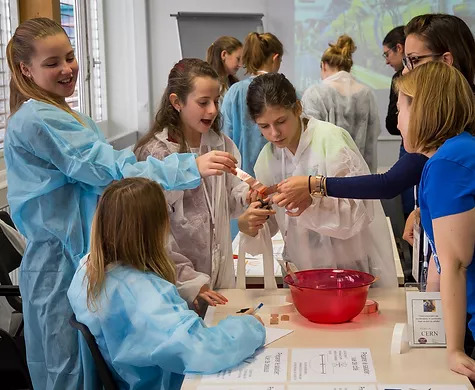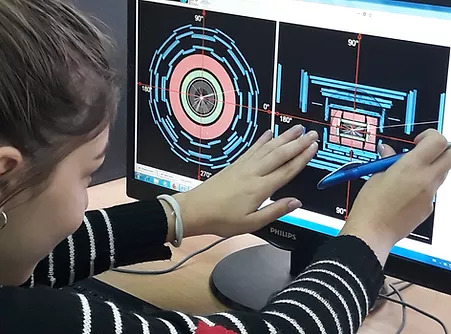ACTIVITY
Girls, do Physics!
MOTIVATION

In most countries, the number of girls interested in studying physics is very low. In general physics is less popular than other sciences, suffering a stigma of being a science that it very mathematical and even without very good job perspective. Many girls, who claim to love science, do not mean physics, not realising how fun physics can be!
It is important to break these stereotypes based on the misperceptions of physics in society. Physics is a pillar of all natural sciences. Physics is about understanding the basic laws of nature, the world we live in. It explains how the world around us and within us functions. This fundamental definition of physics does not often come across to students from their physics school curriculum.
Solving physics problems satisfies curiosity, develops analytical thinking and promotes inquiring mindset. Many problems require creativity and out-of-box thinking to be mastered and this leads to set of skills useful in all aspects of life. Moreover, people with a background in physics and related STEM subjects are highly sought in many professions, including business and industry. Their skills provide a solid basis for finding a successful career.

Today, science, technology and innovation are among the most powerful forces driving social change and development. Natural sciences are also at the heart of producing new solutions to many of the challenges posed, for example, by the increasing risk of climate change, poor water management, or misguided applications of new technology. Therefore physics and related sciences (STEM) play important role also in attaining the Sustainable Development Goals of UN Agenda 2030. A new generation of STEM specialists must prepare innovative solutions for tomorrow, where both genders have an equally important role to play.
Even if STEM jobs today are considered in most cases as a male occupation, women in STEM earn about equal, or even more (Chemists!) than their male counter parts. Today in Europe, less than 20% of the young people choose STEM studies, while the number of STEM jobs grows x3 faster than any other job. If we do not change something, there will be 7 million new European jobs in STEM job by 2025 and not enough people to fill them.





